The Deschooling Dialogues: Grief, Collapse, and Mysticism
This is an edited transcript of a conversation that took place on April 24, 2018 as part of the inaugural quarterly issue of Kosmos Journal. The theme of the first edition is Unlearning Together. As such, it felt appropriate to have a quartet dialogue of unlearning, focused on a complex of issues associated with the inevitable transition to post-capitalism; namely, the issues of grief, collapse and the mystical impulse of transcendence that can provide deep healing in such troubled times. One of the key questions is how we come together to explore the edge of our practice as seekers, as activists, and as advocates for a more just and loving world.
This conversation was facilitated by Alnoor Ladha (AL) as part of an interview series titled, The Deschooling Dialogues: Wisdom from the Front Lines of the Battle Against the Colonized Mind. Rhonda Fabian (RF) is the editor of Kosmos Journal; Martin Winiecki (MW) is the global partnerships coordinator of Tamera, a peace research center in southern Portugal; and Martin Kirk is the co-founder and director of strategy at TheRules, a global network of activists, writers, researchers, coders and others focused on addressing the root causes of inequality, poverty, and climate change.
AL: Thank you for bringing us together Rhonda, and for the critical work you do with Kosmos Journal. Given that this edition’s theme is unlearning together, ‘deschooling’ is the perfect place to start. And especially around grief, because in the Western dualistic mindset that we all have been socialized in, we have a tendency to seek pleasure and avoid pain.
In fact, our moral philosophy, the dominant moral philosophy of utilitarianism and the economic philosophy of neoclassical economics is highly dependent on this premise. Part of the unlearning we’re doing is to re-contextualize and re-understand the role of grief as a mystery unto itself– not as something to avoid or to understand, but to go within and to transmute, to evolving through and with.
Grief is the chrysalis chamber in many ways and it’s necessary in some ways for the redemption for our action. On some level, we can say, “Well, this grief is not ours. It’s for the collective whole.” Yes, that’s true, and in some sense, in a meaningful sense, we are the collective whole. By working with the shadow and light aspects of grief, we are taking responsibility for the emotions that come with the actions we have undertaken as a civilization. Whether it’s collective grief or individual grief or community grief, perhaps it is not something to be avoided, but is actually part of refining our character. So, let’s start there.
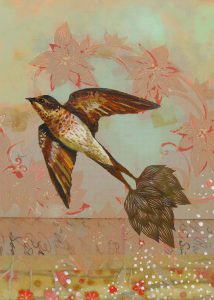
MK: One thing that is challenging that I’m trying to process is that we’re not talking about the grief over a death. We’re not talking about a period of grief. At some level, being alive on this planet as this great unfolding happens is to be living in grief in a permanent sense. Because of the amount of destruction and death that is not only happening but is so very visible if you choose to look. It turns grief into a permanent type of practice. You can’t open up a newspaper without there being some event that in any normal time would be a profound story. But in this day and age, where we are so obsessed with the immediate and the dramatic and the daily political soap opera of things, we see these stories passing every single day with a normality, perhaps even with banality. Whether it’s the destruction of Arctic ice, or the extinction of pollinator species or whether it’s the concentration of ocean plastics or the increasing level human violence in immeasurable ways or whether it’s just the sense of insanity that pervades our political structures and systems right now.
It all speaks to a process of death that is underway and is going to be unfolding throughout our lifetimes at some level. It is also married to a birth, a rebirth. At least that’s the hope—with death comes rebirth. However, it seems that death is far more evident than the rebirth in many ways right now. So the question for me is, how do I work with the concept of grief in a way that doesn’t focus on its end point?
I don’t know that trying to process it away is realistic or sensible or wise. I feel I’m not very skilled at this. I feel I am having to unlearn everything I was taught. It’s a struggle. I have no answers. I’m trying to work with my emotions. I’m trying to connect with them. I’m trying to let them be. And trying to not be attached to the outcome that will inevitably pass. It is the big ‘unending.’
RF: Thank you Martin. I think what you describe is the ongoing daily practice. I’m very fortunate to live in the woods and spend a lot of time sitting with the trees and it occurs to me often that, as wars rage, the trees grow slowly.
My teacher, Thich Nhat Hanh says that a tree doesn’t run around trying to save the world. A tree only has one job, and that’s to be a tree. And when trees stop acting like trees, we’re all in trouble. I wish that I could be more like that sometimes, because when you think about it, trees filter toxins out of the atmosphere simply by their presence. They convert sunlight into food energy without discrimination. And through their mycelium and their roots, they connect to the wider web of life. And, in that same way, I feel that I have to be a good tree. To try to convert some of the toxic substances in my energy field, some of the suffering, into compassion, and to offer the ‘food’ of my presence for the benefit of all Life.
Now, all of that and a dollar doesn’t buy you very much if you’re a victim of sexual slavery, or being tortured in a Syrian prison, or your children are starving. And yet, what helps me is to remember that we are bigger than this human experience. That we’re all connected to the same Source. And we return to Source, the Code of Creation. So, in touching peace I add peace to the whole. Without that peace my activism in ineffective.
MK: I know that I should be sitting in my practice deeper. But I find that there’s an element of this grief that part of me is going slightly mad with. And it’s, and one of the symptoms of that madness is that it disconnects me from my spiritual practice.
The thought-form of Wetiko [an Algonquin word that roughly translates to cannibalism] in some sense is grief itself; it has an innate desire for grief. It has a pernicious desire within it to keep me separated from the practices that will allow me to process grief well. Maybe there’s some sense of guilt that we should suffer. After all, we are part of a civilization that has created so much suffering everywhere. Why should we be free of it? Part of me wants to suffer when it sees the suffering. Part of me doesn’t want to be freed from it. Part of me wants to go mad. Because it feels like going mad is an appropriate response, almost as if it is through the madness that one can truly see.
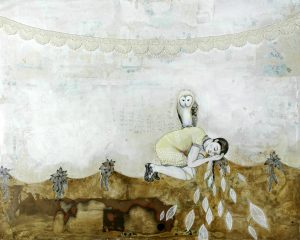
I think at one level I’m accepting this and I don’t beat myself up for it. No human beings have ever lived through a time like this, we have never been able to see such global suffering with such precision and clarity. We are constantly exposed to global horrors on an enormous scale. We see, in real time, the bombs dropping, children being gassed. It happens in our living rooms, in a way the wounds are still fresh and always open.
On one level we are aware of and sense the scale of this terror of global capitalism. Our human brains grew up living in small communities in a contained geographical area with a certain set of influences and inputs. So of course, we are overwhelmed. And on some levels, it is impossible to process. If you try to think about ideas like human extinction, civilizational collapse, all of these vast forces, it’s impossible that a single human mind can process it well. We’ve certainly not been taught how to. I certainly haven’t been.
MW: I would like to follow on this line. There is no doubt that we are in the midst of unprecedented moment where there is no return to old certainties. Part of this pain that we are facing in the world is a pathway toward transformation. Or will we perish in the horror of the onslaught that we are facing? The decision of how we navigate these two avenues profoundly depends on the way we actually respond to that grief that we are facing, that we are receiving, that we are feeling at this moment.
I would like to tell of an experience that for me was actually really significant in dealing with grief. I was visiting a peace village in Colombia called San José de Apartadó, which is a community of farmers who took a stand to remain outside the battle between the FARC and the Colombian paramilitary.
As part of a service commemorating the very painful history of the community, a priest- a liberation theologist- spoke for three hours telling stories of one massacre after the other. After only five minutes I realized my normal self will either collapse or I will just do the usual thing, which is to close my heart and go off somewhere else. At that moment, I made a spiritual oath to stay there in my practice with an open heart and to listen to all the stories and the details. At some point I realized I entered into what I would call a sacred space, a form of transcendence where I felt that if I am able to really bear witness fully, I could remain in a state that is beyond my normal emotional self. And I felt as if, through my heart, I was truly perceiving. I could access a deep empathic state. It was also causing tears. I felt as if there is the collective heart of humanity that wants to awaken. It felt like an incredibly pain-soothing power that wants to operate through us to the extent that we come to the point of pure empathy that lies in receiving this grief.
When I look at our global system structurally, what is keeping our current culture alive is the closed heart of the Western world which keeps us in this illusion that we are separate from each other, that we are egoic Babels that are not interconnected and not interdependent. But there is a ground of existence which is completely interdependent, an eternal realm of existence which in a way we can never lose.
AL: Thank you for sharing this. Yes, it is this state of transcendence that our current crisis can lead us to. There is this idea that is prevalent in spiritual discourse and New Age circles, which is the idea that if you’re feeling pain, you are not healthy. You are not grounded. You are not in your center. But how can we amputate our shadow or even our ego? Actually, by holding reality, our subjective reality, in its full light and its full darkness we can consciously choose how we synthesize the shadow and amalgamate the light.
I have two short anecdotes. My uncle is a Sufi scholar. He would tell us these stories when we were kids about our ancestors and about what their role was in society in ancient Arabia. That they would go into town squares in congregation and pray with a collective intention of healing. They would pray and create sacred geometry and architectures of golden light and hold the energetic force field of these places. They believed they averted war and catastrophe and death and domestic abuse and all of these types things. But they would never claim credit because they didn’t believe in linearity or in cause and effect. They just knew that this was their purpose and needed no other reward except the very act of doing it.
And then, recently, I was listening to Stephen Jenkinson speak. He’s the author of Die Wise and he runs the Orphan Wisdom School. He was speaking to a largely Western audience and suggested, “You’re all looking for purpose. But this very idea of purpose is egoic.” He went on to talk about Indigenous cultures in which there was a cycle of completion. For many Indigenous communities, there’s clear purpose. One is to take care of the land on which they lived, of which they were a part of. The second is to honor the ancestors. The question one asks within these frames is: what kind of ancestor will I be? What kind of steward or caretaker of this land will I be? And because your ancestors were buried on that land, the dual purpose was actually a single purpose. They are the same thing.
This cycle of completion really helps one to understand their purpose. And because you had a relationship with your ancestors, you had a relationship with death itself. You didn’t fear being forgotten. But in our orphaned, Western culture, we fear death because we fear being forgotten. We know that we ourselves are abdicating our responsibility of being stewards of the land and honoring our ancestors.
MK: I agree that part the fear of death is the fear of being forgotten and the fear of being irrelevant and the fear of never having been. One of the things that makes it hard for me sometimes to connect with spiritual practice is that it has to be recreated for me because I didn’t pick it up from my ancestors. I don’t have the language. I don’t have the metaphors, the mythology.
The religious imagery I was brought up with was Protestant UK. And that doesn’t speak to me, the Judeo-Christian tradition doesn’t speak to me. That’s why I cast around to re-create and re-remember truths from many traditions. Without the tethers of things like land, ancestry, access to traditional wisdom, one can feel surrounded by the pain and the suffering. We have to re-access the muscle memory.
RF: I feel your words. I don’t really have ancestral family memory. I don’t know who my father was. I left home very young, at 16, and lived on the streets of New York. And my family, for a time, became the people I met and lived with on the streets. And yet, I know that my ancestors were also present, with me in this circle right now. And yours are too.
It’s absolutely miraculous that our ancestors are right here with us. Look back say 50, 100 generations. They too endured great hardships, struggles, grief. For anyone alive today, your ancestors had to be skillful, smart and lucky for you to exist at all. And we know also that trauma is passed down through the generations in numerous ways. So we are drops of light in a very long evolutionary stream of light. I have to believe that together we are flowing toward an even greater light.
I call on my ancestors. I don’t know them by name, I don’t know what part of the world they’re from. But I ask them to help align my purpose with our highest collective purpose.
MW: Human culture is embedded in a bigger movement of life which doesn’t end at death. We are therefore not confined to this threatening border of death. I want to acknowledge this- it’s very beautiful and inspiring.
I also think that it is very much connected to the idea of tribal culture. Connection with Life requires a cultural container or a framework that actually cultivates community. Not only with the souls of my grandparents and all the generations that came before, but with all the beings that surround us, all that is fundamental to our existence.
Purpose is not just something that is a part of some separated human mind. There is a purpose that is part of life which is evolution pushing forward on its path. When we are no longer driven by the compensation for the loss that we suffered, when we don’t need to invest in personal careers but can actually ground in this sense of community with life, then our purpose is an expression of the purpose of the whole.
However, this embedment needs a foundation where people actually feel this interconnectedness on a daily basis. Right, it’s not just an esoteric buzzword and something that brings book sales for self-help gurus. It needs to be a societal reality,;otherwise, it is just another religious comfort.
AL: Indeed. Even these ideas of ancestry- in some ways, we frame tribal as strictly positive- but there’s also the shadow side where we believe our ancestors are simply the people in our blood lineage. That may be too linear of a definition. If you look at Ancient Egyptian cosmology for example, there was a school of esoteric thought that believes we have star ancestry. We have these star nations that are connected to our higher missions in some way. And they negotiate with our physical DNA line in order to achieve our life objectives.
I’m not suggesting I believe that or not. But it doesn’t have to be DNA ancestry in a traditional sense, but rather to access the notion that we may be a part of something bigger than us, as Martin [Winiecki] described, this affinity to the community of Life. Of course, a part of the world’s endowment is our collective endowment. Including all ancestry, including all life that is extinct or living.
To then go back to physical DNA, I don’t think we fully know what our relationship with our ancestors truly is. Through all the work the scientific community has done on the Human Genome Project, we only understand the workings of about 7% of DNA. The other 93% of DNA that we don’t understand, scientists call junk DNA.
MW: Like Dark Matter.
AL: Yes, it’s the Other. The Unknown. And what they’re finding now is that this DNA has an electromagnetic pulse to it. A very strong electromagnetic current. So in some ways it could be that our ancestors are living through us in this electromagnetic form.
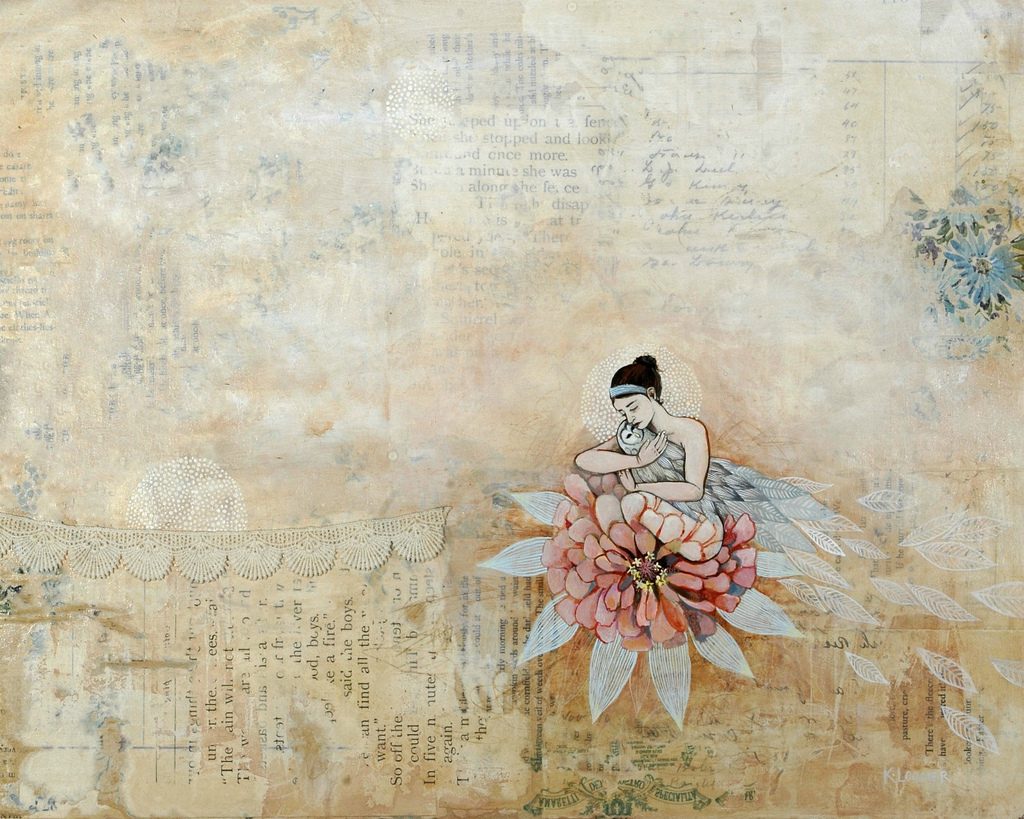
In some ways we’re all in the business of redemption, you know? I know many Westerners, who feel the sense of being orphaned by the migration from Europe to North America wherever. They say, “I actually hate my ancestors. My ancestors were colonialists. They were imperialists. They were slave-traders.” But this is still a connection with your ancestry. And there’s a bravery in facing that as well. To recognize that the agency of our forebears in creating the reality of late-stage capitalism could be the entry point to redemption.
This leads another inquiry: how has the linearity of scientific materialism and scientism and rationalism and binary thought limited us in our ability to transcend the grief of capitalism? How could the impending collapse of capitalism be separate from the scientific method or the Industrial Revolution or Wetiko or any other historical precedent that led to this moment?
MK: First, I’d like to go back to the ancestors and that sense of time, because there’s a linearity in that logic too. They came before me, I will become one, time moves in a certain linear-stages. I take your point about ancestry not just being about direct DNA lineage. But for most people, it is an access point into a bigger concept. So, you have that easier access point.
The ground of being accessed is the emergent reality, the Source, as Rhonda said. That, to me, is a more accessible construct. And when I think about purpose, when I think about things like that, I ultimately come back to the idea that purpose is your connection to that Source of being, which I think of as Love, the force of creation itself. This line of thought helps me access concepts like death, rebirth, and even capitalism.
Capitalism, in all its gross and violent imperfections, is also a process. As such, capitalism may be its own salvation. This is a sort of Sufi thought. It is a part of the universe becoming self-aware. We are so conscious of its shadow right now because it is so obvious. However, its shadow is what takes us through transcendence. It is the power that gets us beyond it. So, it has its own perfection built into it. It is both perfect and violently imperfect at the same time.
RF: I love that we’re touching on the underlying code. When I think of that Code of Creation unwinding through all that underlies Life – the structure of atoms and solar systems- I recognize that we’re fractal manifestations of that code. And I think that somewhere along the way the scientific models made a crucial error about that code—that the basis of the code is competition, that we evolve through a neo-Darwinian selfish gene, by competition. If we can now look deeply at the code through the lens of cooperation rather than competition, things can and will go in a different direction for humanity.
MW: Indeed Rhonda. We are starting to understand what kind of current we are part of. It is very profound that we are still figuring out what it actually is. It’s important to look at the aspect of shadow and grief in this context. If I say I hate my ancestors, then I am actually saying at the same time that I allow the shadow of that story which I don’t want to face, to govern me from that part of myself which I don’t consciously integrate.
If I not only think of ancestors, but of the concept of reincarnation, then I also have to face the possibility that perhaps I was a conqueror. I was a colonialist. There is no way of stepping outside of this until we come to this point of seeing the underlying deep longing for love, which was misguided in a system that was directed against love, against the truth of our bodies, of our souls. A system which turned love, time and again, generation after generation, into hatred.
In some ways, we cannot have a humane transformation if we don’t find another relationship to love, break this eternally repeating cycle of being born, having this longing for love, being disappointed, and then living through resentment and revenge.
MK: That’s a really interesting thought. The idea that we’re all just living out—at least in the Western world—a revenge script. We just feel our expectations have been thwarted around love. I can certainly see that playing out in my life, but if you extrapolate out to the macro, you can see there is indeed revenge. There is anger. There is one-upmanship.
As Rhonda says, it’s the competitive instinct given free rein. And all the energy and all the power pumped into it. We’ve all had our expectations thwarted. We should have been given better. It is, in a sense, kicking against reality.
A conversation that is not had anywhere nearly enough is the recognition of the incredible effort and energy required to keep capitalism alive. If you wanted to put it in financial terms, there are billions of dollars a year just spent on advertising around the world. That’s a number that you can almost say is the degree of propaganda and desire invention required to push against human nature. That is the degree to which it is pushing a rock against our ground of being, against that instinct of love.
We see this with social media and the rise of the communications infrastructures. Everything about it keeps you out of deep thought. That’s the whole point of it. And I think that’s where we are. Our baser desires are primed. They’re getting all the energy, all the validation. Therefore, we can’t access the antidote which is that connection to Source. Which is that deeper spiritual silent voice of conscience that you find in silence. That you find in Nature. That you find in your spiritual practice. Capitalism is designed to de-spiritualize. In that sense it is the opiate of the masses.
Capitalism describes our collective purpose through the prime directive of producing more capital as the number one thing it has to do. This just means, “Focus on something that isn’t love. Focus on something that is purely a human construct that communicates best with your ego, not with your spirit.” Money and ego are in beautiful dialogue with each other. They are of the same nature and they feed each other. This is the depth of the age of delusion, as Buddhist thought describes it. That’s how the trick is cast. It keeps us in our shallow mind, not our deep mind.
RF: As activists, when we try to solely use our shallow mind to solve problems, we’re doomed. We get caught up in those very constructs and we think that technology and rationalism will save us. Just as we think that we’re the good guys and the other person is the bad guy. As long as we address these problems as ‘us versus them,’ we’re doomed. However, when we act from our hearts, we recognize that all beings are my ancestors, all beings are part of my identity. I’m the colonized and I’m the colonizer. I’m the one who is raped and the rapist. When I truly see that, I can begin to understand that toxic energy and how to transform it. Without that sense of wholeness and interbeing with all the energies that are contributing to the problems, I can’t begin to be a part of the solution. My anger just generates more aggression.
AL: In some ways, this is the heart of unlearning together. And in many ways, it is a re-membering. When we define ourselves in opposition to the Other, to Babylon, the Spectacle—whatever the monster may be—we then re-enter dualistic thought, a sense of superiority, and the reification of the ego.
I notice when I say that we are “entering the era of re-membering” or “we are moving from an age of independence to interdependence,” people respond with, “do you want us to return to hunter-gatherer living?” I go back to this Hakim Bey line in his essay series, “Immediatism,” where he says “We don’t want to go back to the Paleolithic, we want to be of the Paleolithic.” We want to access the vast storehouses of psychic power we have forgotten we possessed.
MK: Indeed. This is technology. I feel my practice now is to hold and not turn away from the full horror, while not being transfixed by it, like a deer in headlights. It’s a process of continual renewal inside and continual reconnection to conversations like this. I’m reminded of a quote from this British economist David Fleming. He said “Before you do anything important, consult a conversation.”
RF: I want to express gratitude for the three of you, for the work that you do. We each have our spaces to hold. Some of us can go to the front lines and get arrested and put in jail for our activism. For some, it is ours to witness, to stand and witness the horror. For others, it’s to build community and alternative realities. We all have our work to do.
MW: Yes, I’ve been reminded that unlearning happens by becoming aware of the mind-viruses that keep us hostage. As we are challenged to become aware of the programming that we are driven by, there is such a deep challenge at the moment to understand the depth of the expectation of catastrophe, and come to a place where we can confront reality and know that we are also shaping it. I can say the edge of my practice is really how can I look into the world, not suppressing what happens, and still see beyond the pain, to see the possibility of healing.
AL: Yes, we must become aware of the thought-forms, the mind-viruses, the memetic structures that hold us to that old way of being. And I am reminded of this Vedic line which is, “Our work should never exceed our practice.” And part of our practice is actually this. It is conversation. It is this communalism. It is this sharing. And that is one way to deprogram ourselves from the mythology of a dying system.
Thank you to the three of you for this conversation and your work in the world. And thanks to Rhonda for initiating this conversation. In love and solidarity.
About the Images:
Kelcey Loomer is a mixed-media artist.
“I think of my paintings as abstract maps, where the marks of time and emotion leave traces on the surface. My work focuses on the act of looking inward to feel a connection to the mysteries of life—how the connections to our ancestors, our own past, and to the present moment are all intertwined. My paintings have a unique depth to them that is akin to being in a room where the wallpaper is peeling, revealing hints of color and style from the past inhabitant. They are emotional landscapes that look inward for a sense of place…”
Find Kelcey’s blog here: http://kloomer.blogspot.com/ and her Instagram here: https://www.instagram.


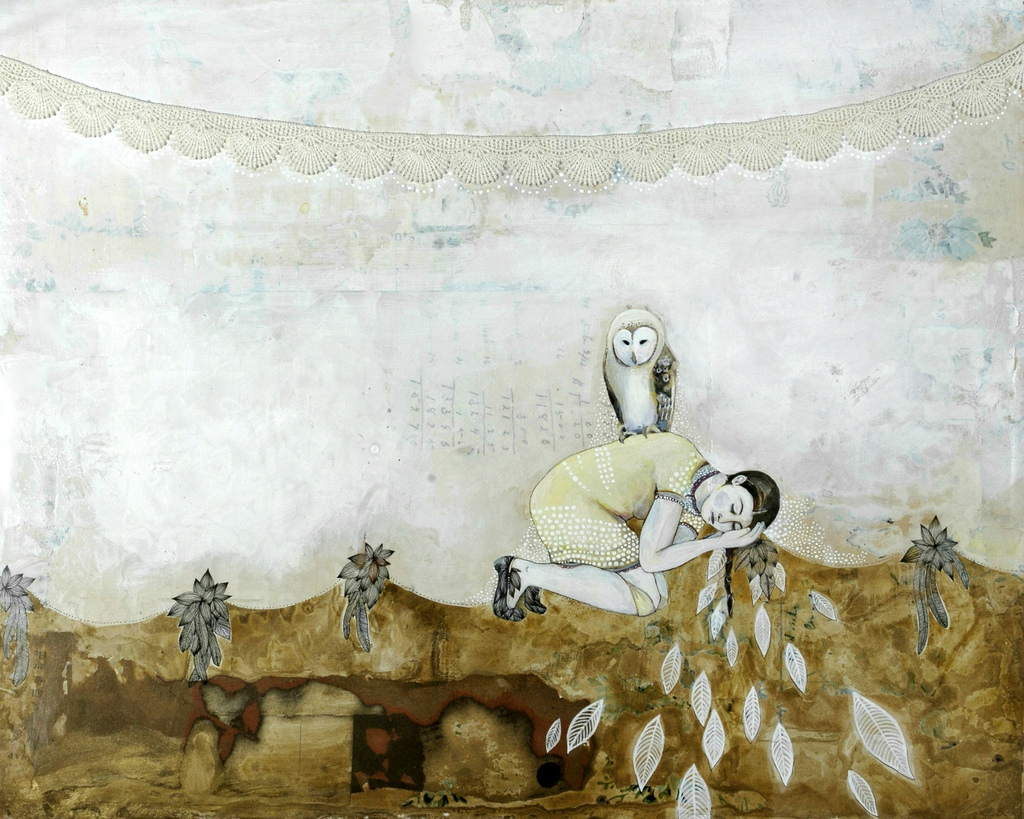
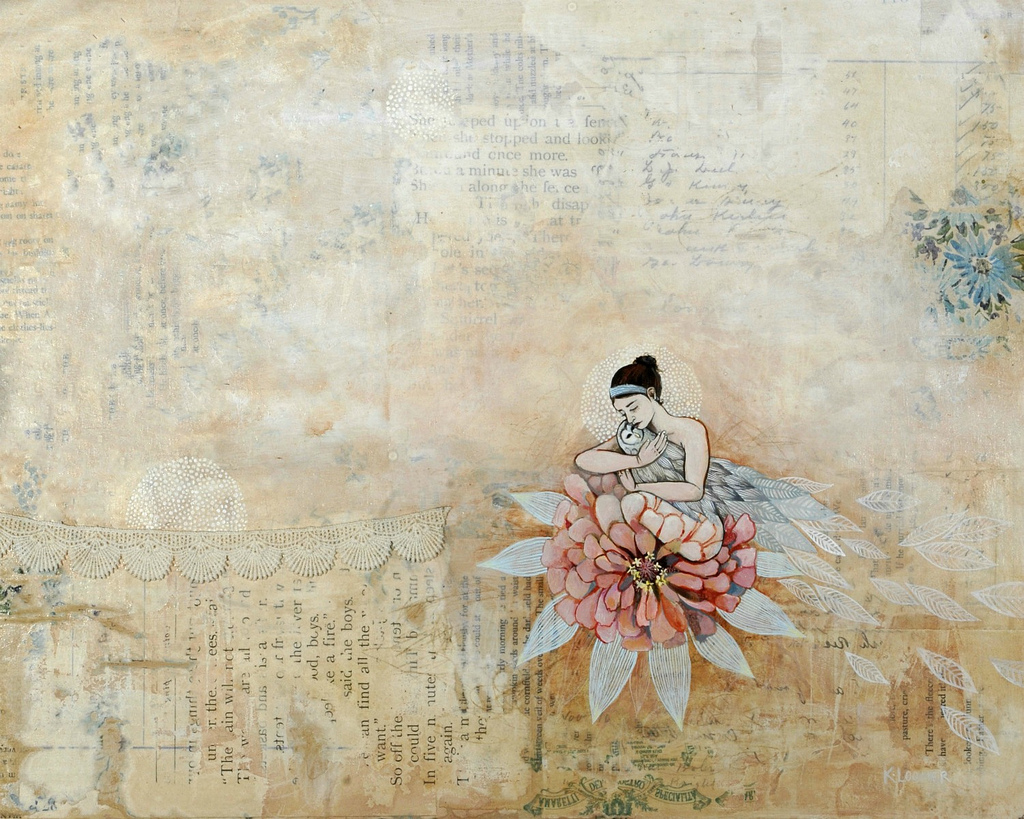
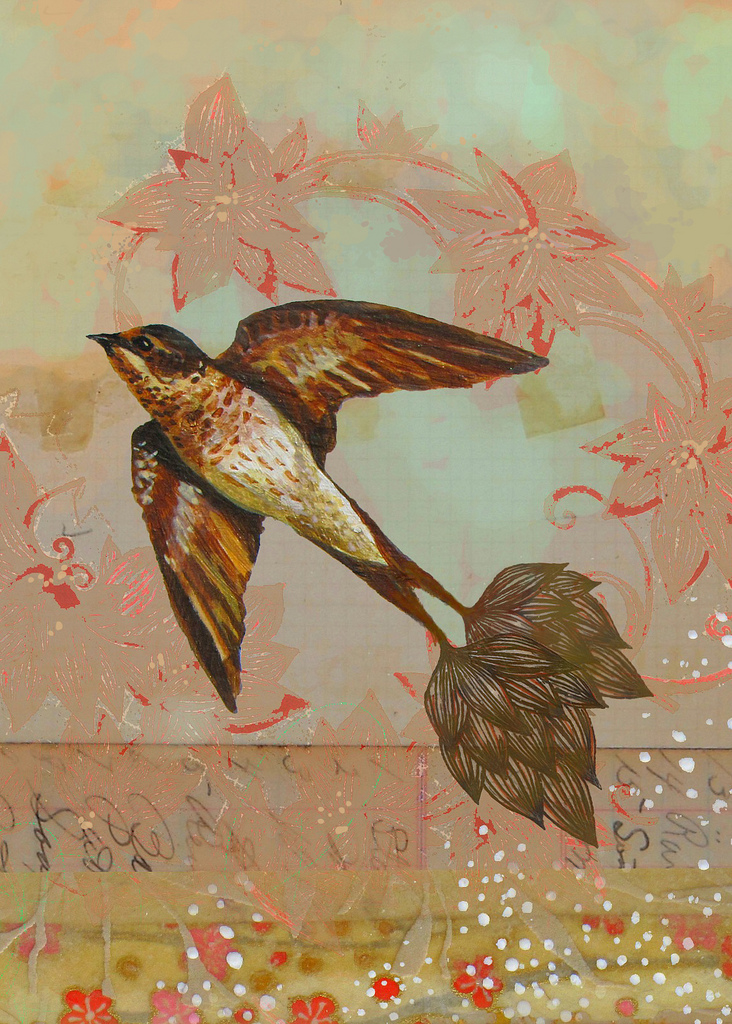
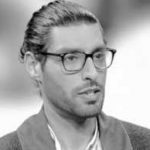
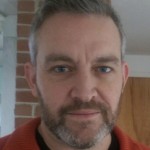

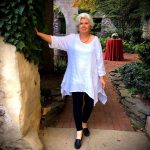
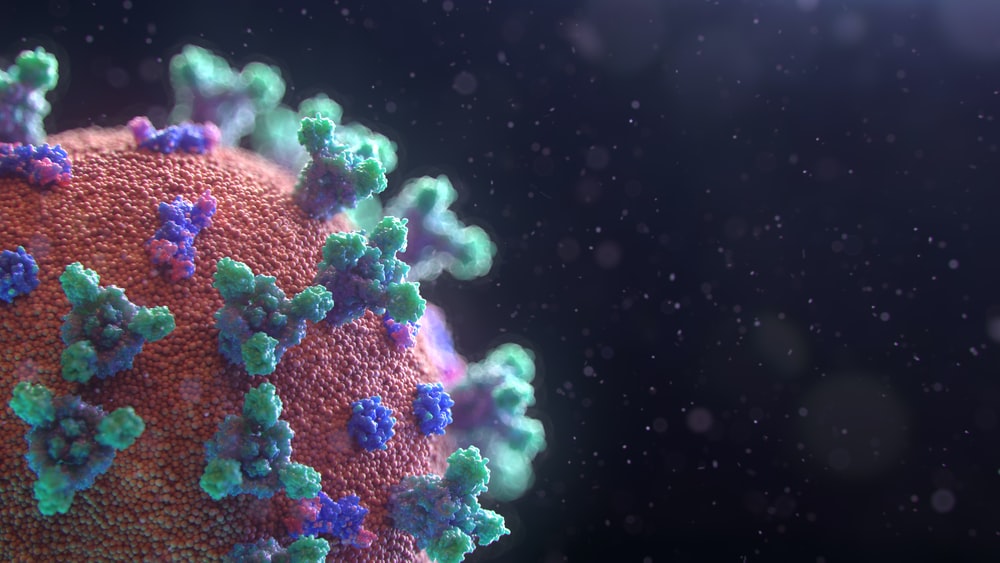
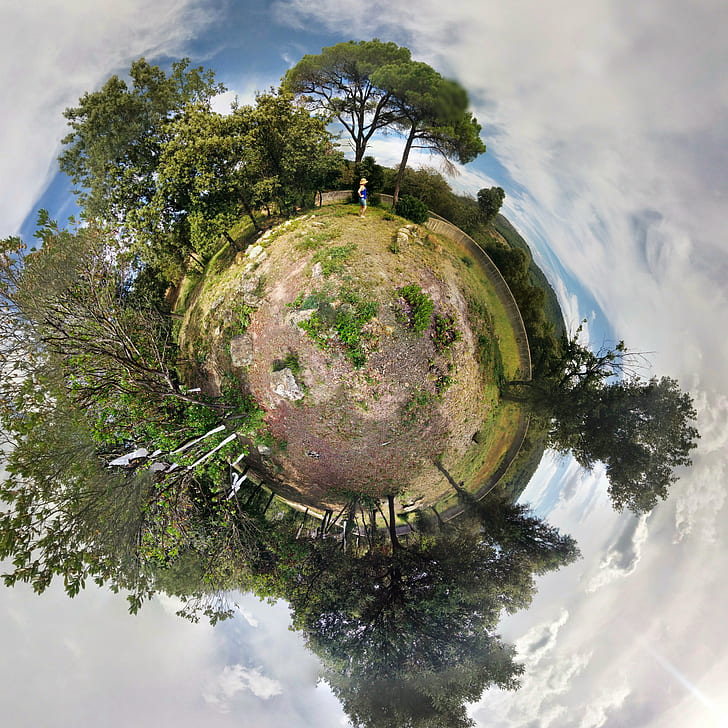
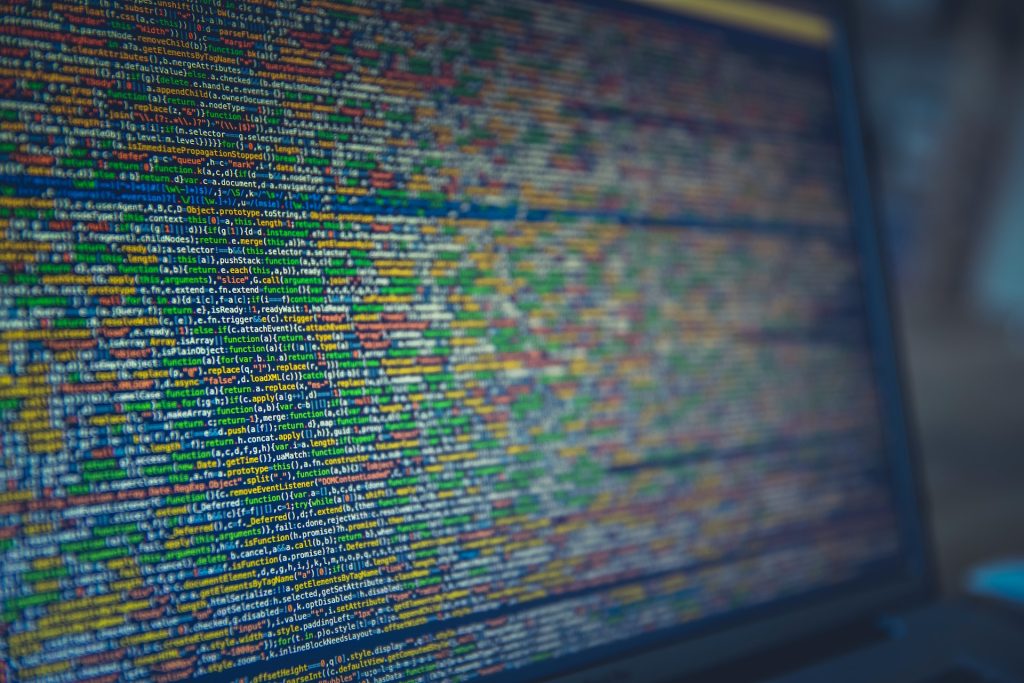
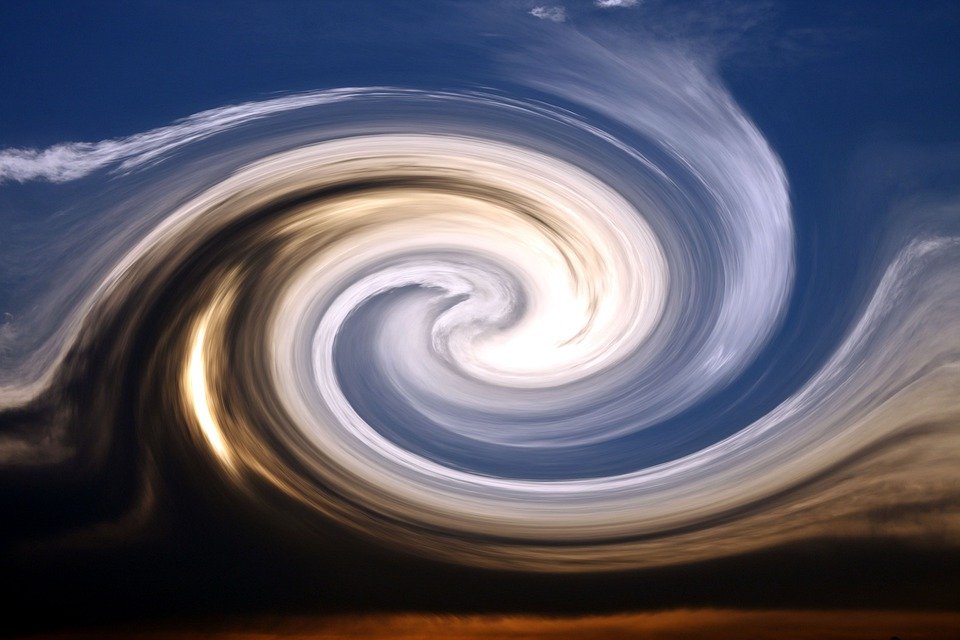
Thank you all for providing a community within which I can access other people who are also feeling the grief and looking to awaken to the Source. It is my greatest hope that there will be an awakening of homo sapiens and that the continuing horrors and destruction of our system will be a thing of the past. It feels as if the work I am doing to be a part of the awakening in my self and to try and be a positive light force in my community, is a process that has no end. The journey is made brighter by this journal.
Gratitude for your support and for providing your community with such a positive presence during these troubling times. We stand with you.